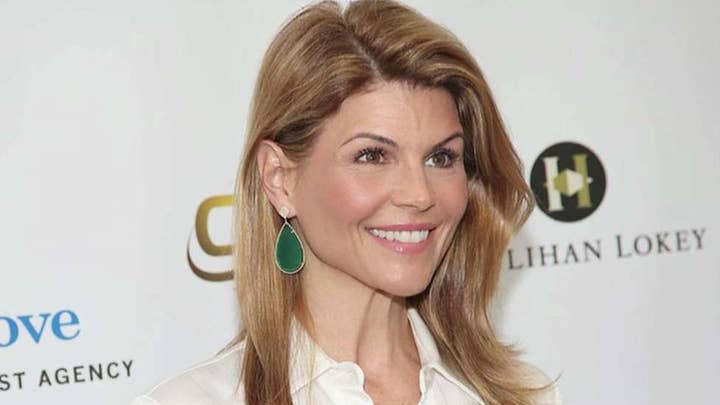The now infamous college admissions cheating scandal, where 50 wealthy parents paid millions of dollars to help their kids get into top American colleges, created a profound reaction which felt personal at times.
For years, parents paid a middleman to fake college test scores, falsify students’ athletic credentials, and bribe universities’ athletic coaches. Actresses Felicity Huffman and Lori Loughlin were among these parents and have become the poster girls for this story.
This scandal has made me wonder – do great wealth and fame contribute to grandiose, narcissistic and antisocial (sociopathic) behavior? Is there something about being in an elitist environment that encourages questionable, dishonest behavior at best, and unlawful behavior at worst?
As a parent with one child in college and another starting her college search process, I understand the parental view point – there is a strong desire to make the collegiate journey as rewarding and successful as possible. It is a stressful time for both parents and their children, but crossing the line to cheat the system is not something I would ever think of or want to do.
Lori Loughlin’s participation in this was especially shocking to me and many others. Her pristine public image is the antithesis of what she and her husband are charged with doing.
I have met Lori Loughlin on two separate occasions. The first time was at a college fraternity party. She was already a famous working actor at the time. The next meeting was brief yet impactful. We were at a party for a magazine that she was featured on the cover of, and she could not have been more lovely or gracious to me and everyone else she met that day.
How can someone who seems so kind do something so outlandish and fraudulent?
Lori Loughlin’s friends describe her as very image-conscious and an extremely ambitious parent who enjoyed talking about her children’s successes and strengths. These friends also said it was important for Loughlin to present herself as a well-rounded woman who “had it all” and “had it all together.”
Could it be that underneath this gracious facade was an individual who really felt superior, entitled to "special treatment," and therefore allowed to break the rules, as criminal as doing so might be?
What links these 50 college-gate people together is they all have achieved a certain level of elevated status (either real or perceived) which appears to have instilled a sense of self-importance, entitlement and privilege.
According to psychiatrist Dr. Robert Millman, with whom I briefly worked, there is a psychological phenomenon called “acquired situational narcissism.” He believes this type of pathological narcissism can be triggered and induced in adulthood by celebrity, wealth and fame.
There are many successful people who don’t have this character disorder, but those typically affected are billionaires, movie stars, famous authors, politicians, and other powerful figures. Sufferers from this disorder develop grandiose fantasies, lose their former ability to empathize, and in general act like classic narcissists.
Acquired situational narcissism most likely occurs when becoming powerful, famous and rich amplifies existing narcissistic traits. The adulation that comes with these privileged positions is frequent, and the inner circle around these people tends to mute criticism and provide biased and filtered feedback.
Situational narcissists may have acted diplomatically and sensibly at one point in their lives, but over time they developed an egocentric personality as they gained a measure of external success. The narcissist believes that he or she is superior to others and therefore untouchable.
This misguided plan to get their children into the right schools, at any cost, is doing these kids more harm than good.
Situational narcissists are typically unaware or unconcerned about how their actions impact others, and possess several of the following qualities: they have a superiority complex; present different faces to different people; see others as superior or inferior but rarely as an equal; are entitled; can be devaluing.
While most are not “bad” people and actually suffer from feelings of insecurity and self-doubt like the rest of us, they work hard to maintain an outward veneer of superiority.
For those situational narcissists who lose their way, short-term glory is replaced with long-term self-destruction and failure, as they eventually become victimized by their own egocentric inclinations, as we saw in the case of the college-gate 50.
Personality disorders often travel together. So other antisocial features such as putting one’s needs above the group’s, lacking empathy for others, exploiting others, and looking the other way while laws are broken, can also accompany this form of narcissism.
Being catapulted into a privileged group that normalizes bad behavior or even rewards it with temporary success can explain how some of these parents got so morally side-tracked. We can almost see how they could convince themselves that it’s alright to do anything, including bend the rules or break the law, if it benefits their kids and family.
But here’s the unfortunate truth: This misguided plan to get their children into the right schools, at any cost, is doing these kids more harm than good. Not only does it take away spots from students who have really worked for them, it robs their own children of the necessary and invaluable experiences of managing reality, frustration and failure, and of developing a sense of resilience.
While it is natural for parents to want to protect their children from disappointment and provide them with the best opportunities, it is much more important for kids to learn how to handle disappointment and to stand back up. We must teach our children to work hard to achieve their goals – not that money can buy them what most people have to earn.
What is earned through hard work is always appreciated more. Working diligently towards a goal leads to long-lasting feelings of positive self-regard and self-confidence.
So, to get back to my original question, "Can great wealth and fame contribute to antisocial, law-breaking and narcissist grandiosity?” The answer is yes, at least in some cases.
CLICK HERE TO GET THE FOX NEWS APP
I hope this college debacle will be a cautionary tale that gets both parents and kids to sit up and take notice. No one is above the law. There are consequences for criminal behavior, even if you are privileged. Problematic parental messages, like the ones exhibited by the parents in this story, do impact and shape what children believe and how they act.
One of the greatest gifts we can give our children is the ability to internalize a proper moral compass; to help them know what’s right and what’s wrong while facilitating an inner belief system and strength of character. As was emphasized by this college admissions scandal, the ends do not always justify the means.












































